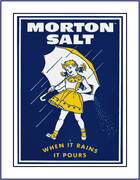|
All I can say for sure is that the Mass Effect universe is incredibly lucky that the Asari aren't also 9 feet tall
|
|
|
|

|
| # ? Jun 7, 2024 16:03 |
|
Epic High Five posted:All I can say for sure is that the Mass Effect universe is incredibly lucky that the Asari aren't also 9 feet tall We don't actually know what the Asari look like
|
|
|
|
Mild humor, we need to put the Elcor in charge.
|
|
|
|
sean10mm posted:"this place is poo poo but we're not supposed to force our values on others so what do you do about space hitlers?" Iain M. Banks explored this question in a much more interesting fashion in the Culture novels, and his answer is the hypocritical conceit of 'Special Circumstances'.
|
|
|
|
The Culture novels are so good, such a strange and unique premise to it all and like a good socialist the whole series is just an experiment in exploring the society's contradictions and hypocrisies and the ambiguous calculations of harm reduction and necessity Of course as soon as I got to book 4, Audible removed books 4-7 from their library without any explanation
|
|
|
|
Hungry posted:Iain M. Banks explored this question in a much more interesting fashion in the Culture novels, and his answer is the hypocritical conceit of 'Special Circumstances'. Well yeah, they're real good books.
|
|
|
|
VitalSigns posted:Whaaaat That's actually my point. Some things, like growing grapes, people might do for fun. But even things people would never do for fun, like mining coal, I could see still making physical marks on a community by being present. Can't you see the fifth generation of unlimited UBI inhabitants in a Kent coal town demanding the mine be made a historical site for cultural reasons?
|
|
|
|
Centurium posted:That's actually my point. Some things, like growing grapes, people might do for fun. But even things people would never do for fun, like mining coal, I could see still making physical marks on a community by being present. Can't you see the fifth generation of unlimited UBI inhabitants in a Kent coal town demanding the mine be made a historical site for cultural reasons? Coal mines are colossal scars on the earth that seep poison into the local water table so preserving one would be roughly equivalent to preserving a live antipersonnel minefield or a leaking bunker full of nuclear waste.
|
|
|
|
The Oldest Man posted:Coal mines are colossal scars on the earth that seep poison into the local water table so preserving one would be roughly equivalent to preserving a live antipersonnel minefield or a leaking bunker full of nuclear waste. Eh I could see it in a hyper future post-scarcity decadent society like the Culture where people are basically immortal and can indulge incredibly dangerous activities and environments just as purely an aesthetic or artistic gesture.
|
|
|
|
DrSunshine posted:Eh I could see it in a hyper future post-scarcity decadent society like the Culture where people are basically immortal and can indulge incredibly dangerous activities and environments just as purely an aesthetic or artistic gesture. "I can deface a planet with a coal mine for aesthetics" is several levels of economic development beyond a UBI society.
|
|
|
|
Diverting my post-scarcity resources into pumping coal slurry into the underground Centralia mine fire so instead of burning for just a hundred years it rages for eternity as a monument to are heritage
|
|
|
|
The criticism that Star Trek doesn't offer a compelling model for what a post-scarcity society would actually look like is really burying the lede. The most pervasive way in which Star Trek is politically regressive is its absolutely relentless xenophobia. Both in the passive sense of aliens almost always being bad news, and more direct ways, like the change in the way Klingons are presented between the original series and The Next Generation.
|
|
|
|
SubG posted:The criticism that Star Trek doesn't offer a compelling model for what a post-scarcity society would actually look like is really burying the lede. The most pervasive way in which Star Trek is politically regressive is its absolutely relentless xenophobia. Both in the passive sense of aliens almost always being bad news, and more direct ways, like the change in the way Klingons are presented between the original series and The Next Generation. Are there any science fiction television or film franchises that do a great job of differentiating within alien races? I don't remember Star Trek having brown-skinned aliens before Tuvok. I know it's mainly due to budget constraints, but most alien races in most science fiction that I've seen are portrayed as having the same shades of skin and the exact same clothes and I always wondered if that was an unwitting insight into how many Americans viewed Asians like me.
|
|
|
|
Eric Cantonese posted:Are there any science fiction television or film franchises that do a great job of differentiating within alien races? I don't remember Star Trek having brown-skinned aliens before Tuvok. differentiating in what way? star trek and star wars are quite notable for 'humans with prosthetics and a different colored skin', but there are a lot of other shows and movies which do a much better job
|
|
|
|
Aruan posted:differentiating in what way? star trek and star wars are quite notable for 'humans with prosthetics and a different colored skin', but there are a lot of other shows and movies which do a much better job 
|
|
|
|
Sorry for any confusion. SubG clarified my question for me. 
|
|
|
|
Eric Cantonese posted:Are there any science fiction television or film franchises that do a great job of differentiating within alien races? I don't remember Star Trek having brown-skinned aliens before Tuvok. There's levels of it. The traditional Star Trek "zero budget" portrayal of aliens is as being a single guy in a grey room on the view-screen as a representative of a) the only political faction of that species, b) the only culture of that species, and c) the only race of that species. Monoculture one-world governments with a single executive leader are the norm for space faring species. The real eyebrow raise is when we see an alien species over many, many episodes and you realize that the homogeneity of aliens isn't really for budget reasons, it's because the writers are incredibly lazy mostly white upper middle class types with little interest in developing a broader cultural or racial picture of a species because why would you want to do that? Even the borg, who were originally written as a totally ineffable collectivist hive-mind in TNG, turned into zombified monarchists with a single executive leader later on because the writers are just too loving lazy to do anything else.
|
|
|
|
virtually everything wrong with star trek can be explained by the fact that at this point theres been like fifteen different loosely connected iterations staffed by largely lazy writers, a dozen movies of which maybe four are passable, and an absolute focus on churning out as much garbage as possible like, star trek: first contact exists. the entire post ww3 society they travel back to makes like, less than zero loving sense.
|
|
|
|
also a shoutout for the absolute dumbest political messaging in a science fiction movie ever: romero's land of the dead, where despite being literally the only living city left - and despite their economy being entirely based on scavenging - money is still Very Important for Reasons
|
|
|
|
The Oldest Man posted:There's levels of it. The traditional Star Trek "zero budget" portrayal of aliens is as being a single guy in a grey room on the view-screen as a representative of a) the only political faction of that species, b) the only culture of that species, and c) the only race of that species. Monoculture one-world governments with a single executive leader are the norm for space faring species. In the original series Klingons are literally white guys with shoe polish on their faces, and the aesthetic the designers were going for is something like the Golden Horde in space. This is pretty yikes. So let's take a moment to say yikes about it. But narratively the Klingons were a political allegory not a racial allegory. That's not an excuse and I'm not offering it as one, but when we look at how the show tries to use the Klingons, it's all coded in ways that are waaaaay less yikes than the Klingons in TNG. The first Klingon we meet is Kor, who's well-spoken, charismatic, and in terms of code switching if we react negatively to him it's because he comes across as too aristocratic, too posh. Compare this to the Klingons in TNG, who now have facial prosthetics to make them look more monsterous, they now speak in gutteral growls, they're all racially violent in the punch-you-in-the-face-for-anything sense, and they're implied to be sexually violent as well, they now all eat food that everyone else finds gross, and so on. Like the first episode in the original series with Klingons is about the Klingon Empire and the Federation both showing up on a planet with a peaceful, agrarian society and both trying to colonise it. The punchline of the episode is that the peaceful farmers are actually a hyper-advanced civilization with capabilities beyond either the Klingons or the Federation, and the farmers chastise both of them for being violent and primitive before shooing them off their planet. Back on the Enterprise Kirk muses that maybe they're right. Even if we don't give the show a pass for the white guys in shoe polish thing (and I don't think we should), this is still a waaaaaay more nuanced approach to aliens-as-metaphor than the stuff that TNG does which is straight-up minstrelsy with a science fiction coat of paint.
|
|
|
|
It's surprising how much of Star Trek's descent into mediocrity you can lay at the feet of this one guy. Sort of the epitome of the Peter Principle, he wrote a few pretty solid episodes of TNG and then was responsible for all of the following: Co-wrote Star Trek: Generations and Star Trek: First Contact Showrunner for Voyager seasons 1-6 Co-created Enterprise Then went on to co-create three different sci-fi TV shows that unfortunately lacked the Trek brand to coast on and were all cancelled after one season including that awful show Threshold, which coincidentally is also about how aliens are evil motherfuckers, Terra Nova, in which an explosion chased a tyrannosaur which was chasing humans down a catwalk into a time hole, and FlashForward which was very, very boring. Of course as soon as he left the franchise we started getting reboot movies and Patrick Stewart and Johnathan Frakes's inadvertent attempts to generate infinite free electricity from Gene Roddenberry spinning in his grave so I guess you can't blame him for everything. SubG posted:Like the first episode in the original series with Klingons is about the Klingon Empire and the Federation both showing up on a planet with a peaceful, agrarian society and both trying to colonise it. The punchline of the episode is that the peaceful farmers are actually a hyper-advanced civilization with capabilities beyond either the Klingons or the Federation, and the farmers chastise both of them for being violent and primitive before shooing them off their planet. Back on the Enterprise Kirk muses that maybe they're right. I think TNG season 1 is pretty much representative of what Roddenberry wanted to do with minimal oversight from other writers or the studio and we got Code of Honor and the original version of the Ferengi out of that so. The Oldest Man fucked around with this message at 03:58 on Feb 16, 2021 |
|
|
|
Eric Cantonese posted:Are there any science fiction television or film franchises that do a great job of differentiating within alien races? I don't remember Star Trek having brown-skinned aliens before Tuvok. How about Stargate (the television show)? The primary alien species are the Jaffa, and the protagonist Jaffa is played by an african-american dude, but we see various shades of skin throughout the series among the alien race. And the antagonist alien species is literally a brain parasite, so they're portrayed by all sorts of actors in varying costumes. Of course the premise of the show is that humans actually live all over the galaxy due to the actions of the parasitical antagonist race, and even the Jaffa are originally humans but altered over millennia, so I dunno if this counts for the purposes of differentiating actual aliens! The show does have the stamp of approval of the US Air Force, so even without seeing it, one can probably guess what the general view of the US military portrayed on the show is.
|
|
|
|
Rappaport posted:How about Stargate (the television show)? The primary alien species are the Jaffa, and the protagonist Jaffa is played by an african-american dude, but we see various shades of skin throughout the series among the alien race. And the antagonist alien species is literally a brain parasite, so they're portrayed by all sorts of actors in varying costumes. Of course the premise of the show is that humans actually live all over the galaxy due to the actions of the parasitical antagonist race, and even the Jaffa are originally humans but altered over millennia, so I dunno if this counts for the purposes of differentiating actual aliens! You have to step past a whoooole lot of jerk-off military apologia and white supremacist cultural appropriation to get into Star Gate, but it's not all bad. The evil alien brain parasite species turns out to not to be a racial destiny but sociopathic megalomania they've all acquired from over-using their immortality technology; the splinter brain parasite culture that abstained from using it are pretty reasonable people fighting an unwinnable insurgency against the dominant colonizer culture. I found that to be a pretty good take for pop sci fi. Where the gently caress is my goa'uld pretending to be jesus though
|
|
|
|
The Oldest Man posted:God Emperor of Dune is the best book in the series and it's not even close in my opinion. The first book is just a play on the monomyth and frankly not all that interesting except as a prelude to what follows, the second and third books are an interesting sci fi political drama (better written but not substantially better or of a different literary character than like ASofIaF), but it's only in the fourth book where Herbert really gets to go full throttle on his ideas about predestination and the hero myth and it is hog loving wild. The 2nd and esp 3rd Dune book were not very good, especially because poo poo which make no sense like Leto II able to switch consciousness with Paul in present time?? are used to resolve the climax of book 2. But then is never explored or brought up again. On a whole book 1 and 4 both introduced a lot of interesting ideas and themes whereas book 2/3 didn't. Herbert imo had the right idea about the downfall of the hero in book 2 and 3 but really really didn't implement it well.
|
|
|
|
Epic High Five posted:The Culture novels are so good, such a strange and unique premise to it all and like a good socialist the whole series is just an experiment in exploring the society's contradictions and hypocrisies and the ambiguous calculations of harm reduction and necessity Banks dying is really the only "celebrity" death that's actually bummed me out and I wish I could have met him. I really loved the Culture books and pretty much all the other stuff of his I read - his imagination and wry sense of humour just really clicked for me and it sucks knowing that voice is gone forever  I've still got Matter, Hydrogen Sonoto, and Inversions (if that counts) to read, kinda don't want to because then there won't be any new stuff to look forward to. Interested to see what Amazon does with the series. I've still got Matter, Hydrogen Sonoto, and Inversions (if that counts) to read, kinda don't want to because then there won't be any new stuff to look forward to. Interested to see what Amazon does with the series. Off topic for this thread, but Raw Spirit of his is a bit of a guilty pleasure - it got somewhat lacklustre reviews for being self-indulgent (it's basically a travelogue of Banks driving around Scotland and talking about his cars/motorbikes, scotch, and British SF) but his hobbies and mine overlap pretty nicely so it was right up my alley. One of my rainy day projects is to go back and re-read it, and take notes on his routes so I can use it as a base for a future road trip.
|
|
|
|
To go back to a point made a page ago: The Oldest Man posted:This is equivalent to giving Heinlein a pass for his writing because he was blinkered by libertarianism, anti-communism and an incest fetish and saying "don't talk about it or you're a teenager on TV Tropes." They're not equivalent at all, though. You can't pin an affirmation of something on a detail that someone omitted and compare it with taking someone at his word for something he did think of and explicitly advocate for. The reason why there's row crops in Picard's vineyard in the 24th century is because the writers didn't or couldn't envision a farm without row crops, not because they secretly envisioned how a post-scarcity society could still have land ownership and a caste system. The reason why Starship Troopers glorifies militarism and military adventurism is because Heinlein was a militarist and xenophobe who wanted to write a novel glorifying militarism and xenophobia. I'm not saying "don't talk about it", but I'm saying that to pick up on a minor detail that the showwriters didn't think to develop, and then running away with it in speculation in order to actually cast their explicitly utopian vision as its inverse, is running awful close to the kinds of things that edgy fans like to spook each other with. It's like asking "Why don't wizards just shoot each other with guns?" or "Why don't they just fly the ring to Mordor?" EDIT: I mean, you could certainly have a discussion about the show creators and point out how they were limited by their context, and criticize their shortcomings. That's totally legit! If that's what you're doing that's fine. But to go off and spin a whole headcanon based on the worldbuilding details they never thought of is fanfiction. DrSunshine fucked around with this message at 20:49 on Feb 17, 2021 |
|
|
|
Centurium posted:Where this doesn't square with the narrative world is that they out of necessity claim that unobtanium X can't be made in a replicator. If dilithium isn't replicatable but you need it to build up a fleet of ships that can prevent the Dominion from conquering you, how does the Federation produce enough dilithium without changing their society or relying entirely on the enthusiasm of dilithium mining enthusiasts? TNG: "Data has the right to choose, also we should be careful not to create a slave race" Voyager: "You have to pay The Doctor for his novel but he's not a person, also we're using a bunch of the other ones we created as a slave race"
|
|
|
|
Picard's vineyard is no longer capital in LAGSC because accumulation is impossible it's now personal property just like kirk's cornfield shipyard some jerkoff just gets joy from growing corn people like papa sisko use it because they get joy from organic food klingons talk about blood wine vintages because their planet is Brutal Manual Labor Gay Space Feudalism. This explains why we only see Klingon "warriors." These are the landed gentry who provide military service in exchange for being granted manors by their lieges, and all the people who actually makes stuff on qonos are serfs bonded to the land or guildsmen and burghers living in free imperial cities or whatever. (the high council are the electors, obvi)
|
|
|
|
DrSunshine posted:They're not equivalent at all, though. You can't pin an affirmation of something on a detail that someone omitted and compare it with taking someone at his word for something he did think of and explicitly advocate for. If it doesn't bear this sort of scrutiny because the writers failed to think their own arguments through then at best it's just empty propaganda. Sorta an Atlas Shrugged or Jack Chick pamphlet situation where all of the people who disagree with the author's viewpoint are stinky and stupid and come to bad ends because the author says so, and all the people who agree with the author are cool and good and get poo poo done because they literally have magical powers that the author is permitting to only them. I guess that's okay as wankery, but that's all it is. It's certainly not a compelling argument. So I guess if your argument is that Star Trek is intellectually empty and should only be watched because there are pew pew spaceships and weird aliens that we can hate (and let us not think about the fact that we're invited to dislike the aliens in ways that hauntingly recapitulate minstrelsy), okay. But I'm pretty sure the common perception is that Star Trek is--or at least purports to be--an example of Science Fiction With Ideas, and for that matter a large number of viewers will tell you that the ideas Star Trek ostensibly has are progressive. So we're kinda stuck either just nodding along and not thinking about it to much, or we have to actually, you know, unpack this poo poo and see what it actually says to find out to whether what it says is worth the screen time lugubriously devoted to it.
|
|
|
|
Centurium posted:Where this doesn't square with the narrative world is that they out of necessity claim that unobtanium X can't be made in a replicator. If dilithium isn't replicatable but you need it to build up a fleet of ships that can prevent the Dominion from conquering you, how does the Federation produce enough dilithium without changing their society or relying entirely on the enthusiasm of dilithium mining enthusiasts? Kirk-era Star Trek still had money and a class system, so dilithium mining was a way for poor people to strike it rich in exchange for backbreaking labor in lonely spartan and deadly conditions (TOS: Mudd's Women). Also features sex trafficking and 23rd-century mail-order brides and sex slavery which is treated as 100% normal with Mudd's only crime being that the drug he was selling to the mail-order brides that makes them hot was a placebo and the real hotness-drug was the self-confidence you get from thinking you're taking a magic drug or some poo poo. And yeah as mentioned it's established in Voyager that in the Picard era dilithium mining is done by an artificial intelligence slave caste. VitalSigns fucked around with this message at 23:18 on Feb 17, 2021 |
|
|
|
SubG posted:At very best it merely makes their arguments vacuous because they failed to think them through. If we're presented with e.g. the Ferengi, Klingons, and Borg, for example, and we're actively invited to condemn them because of the ways in which they've chosen to organise their societies and how they treat members of their own societies and how they interact with other societies then this requires us to ask questions about the other society, the Federation, which is presented as a more desirable alternative to them. Right, but the option here is to follow the "row crops" concept (I have no idea what to call this theory!) to its logical end and conclude that, in the end, the Federation is no better than all those other dystopian societies. Instead of seeing it as the only major sci-fi franchise that's generally well-known and accepted by our present capitalist society that even dares to have characters say "We don't have money and no longer aspire to wealth but to self-betterment and discovery", we are forced to realize that that's a lie told by privileged members of a militaristic expansionist empire. There isn't any other popular show that even dares to challenge liberal ideology - at least not in a positive and optimistic way. The only choices are works that either reinforce the status quo or "challenge" it without really challenging it, by embracing a kind of faux "punk" cynicism. In Capitalist Realism, Mark Fisher writes: quote:Watching Children of Men, we are inevitably reminded of the phrase attributed to Frederic Jameson and Slavoj Zizek, that it is easier to imagine the end of the world than it is to imagine the end of capitalism. That slogan captures precisely what I mean by 'capitalist realism': the widespread sense that not only is capitalism the only viable political and economic system, but also that it is now impossible even to imagine a coherent alternative to it. Once, dystopian films and novels were exercises in such acts of imagination... Not so in Children of Men. The world it projects seems more like as an extrapolation or exacerbation of ours than an alternative to it. And: quote:...As Zizek has provocatively pointed out, anti-capitalism is widely disseminated in capitalism. Time after time, the villain in Hollywood films will turn out to be the "evil corporation". Far from undermining capitalist realism, the gestural anti-capitalism actually reinforces it. ... [But] this kind of irony feeds rather than challenges capitalist realism. A film like Wall-E exemplifies what Robert Pfaller has called "interpassivity": the film performs our anti-capitalism for us, allowing us to continue to consume with impunity What I'm getting at is that there's value to a message that society can be better. If we stop believing in it, then what's left that lets Star Trek stand apart from other dystopian sci-fi worlds? People should have a right to believe that worlds beyond capitalism, and better than capitalism, could possibly exist. Star Trek is the most popular franchise that at least proposes this explicitly - as good as Iain Banks's Culture is, it's nowhere near as popular or well-known as Star Trek. quote:So I guess if your argument is that Star Trek is intellectually empty and should only be watched because there are pew pew spaceships and weird aliens that we can hate (and let us not think about the fact that we're invited to dislike the aliens in ways that hauntingly recapitulate minstrelsy), okay. But I'm pretty sure the common perception is that Star Trek is--or at least purports to be--an example of Science Fiction With Ideas, and for that matter a large number of viewers will tell you that the ideas Star Trek ostensibly has are progressive. So we're kinda stuck either just nodding along and not thinking about it to much, or we have to actually, you know, unpack this poo poo and see what it actually says to find out to whether what it says is worth the screen time lugubriously devoted to it. What I want to propose is an alternative to this reading. Instead of trying to perform capitalist realism by leaping to an "uh-actually, it's just a liberal dystopia with full UBI", and not trying to even conceive of what a post-scarcity future could be outside of a capitalist framework, maybe we should look at these incongruities and see them as a way that the writers themselves made mistakes. Continuity errors come up all the time in long-running franchises and need to be explained away. I don't see why it couldn't also be like this for Star Trek. I would personally like to continue to believe that Star Trek's world is a genuine FALGSC world, which has some problems in its depiction on-screen because the show creators couldn't (or wouldn't) get outside of their ideological headspace to think of all of the details and implications. EDIT: Full disclosure - I've not yet watched Discovery or Picard. They didn't seem appealing to me. I guess I should! DrSunshine fucked around with this message at 00:16 on Feb 18, 2021 |
|
|
|
DrSunshine posted:What I want to propose is an alternative to this reading. Instead of trying to perform capitalist realism by leaping to an "uh-actually, it's just a liberal dystopia with full UBI", and not trying to even conceive of what a post-scarcity future could be outside of a capitalist framework, maybe we should look at these incongruities and see them as a way that the writers themselves made mistakes. Like I don't think that TNG recapitulating all of the tropes of early 20th Century race films is because the writers sat down and decided that's what they were intending to do. I think those racist tropes seeped into the show because they're deeply embedded in contemporary American culture, and the writers are immersed in that culture, and so they are prone to percolating to the surface even when the writers do not indend to consciously invoke them. But that doesn't mean that we can, much less should look at these things and pretend they don't exist simply because we don't wish to impute intent to the people who produced it. Similarly, if we want to speculate about the intent of the writers re: capitalism then yeah, I'm sure they're notionally committed to some form of opposition to unrestrained capitalism. That's (one of the) obvious antecedents to e.g. the Ferengi. And they're notionally committed to some form of opposition to unrestrained collectivism because of the Borg. But just because they approach these things with what we might presume is good intent doesn't mean that what they produce will only--or even predominantly--reflect that intent. Like all the times when they write episodes that are about how enlightened the Federation is because they're willing to be friends with debased savages like the Klingons. Even if we posit the best of intentions, it comes across as a cautionary tale about how White Man's Burden nonsense can be a trap for the faux progressive. Similarly if they're trying to construct an image of the Federation's notionally utopian society standing in contrast to the dystopianism of Ferengi or Borg culture, if the thing they offer doesn't in fact say what they claim it says then at best the argument is facile. And I can't think of any reason, apart perhaps from a priori sympathy for the writers, to decline to evaluate the text for what it actually says, in the same way we're willing to acknowledge accidental or unintentional racism as full stop racism. SubG fucked around with this message at 00:41 on Feb 18, 2021 |
|
|
|
DrSunshine posted:Right, but the option here is to follow the "row crops" concept (I have no idea what to call this theory!) to its logical end and conclude that, in the end, the Federation is no better than all those other dystopian societies. Instead of seeing it as the only major sci-fi franchise that's generally well-known and accepted by our present capitalist society that even dares to have characters say "We don't have money and no longer aspire to wealth but to self-betterment and discovery", we are forced to realize that that's a lie told by privileged members of a militaristic expansionist empire. There isn't any other popular show that even dares to challenge liberal ideology - at least not in a positive and optimistic way. The only choices are works that either reinforce the status quo or "challenge" it without really challenging it, by embracing a kind of faux "punk" cynicism. Seconding that Capitalist Realism is an extremely good, short, and on point read for the modern hell times. The new project of management of the imperial core has been the enclosure of the possible for decades now
|
|
|
|
SubG posted:Like all the times when they write episodes that are about how enlightened the Federation is because they're willing to be friends with debased savages like the Klingons. Even if we posit the best of intentions, it comes across as a cautionary tale about how White Man's Burden nonsense can be a trap for the faux progressive. Thatís not Capitalist Realism, it is Imperialist Realism. If you canít imagine any possibility that there could be any power relation between the Federation and Klingon Empire other than oppression cloaked in some kind of liberal bullshit, then literally anything presented on screen will be seen as supporting that view. A one-sided made-up-Klingon-word-for-die always rolls 1.
|
|
|
|
radmonger posted:Thatís not Capitalist Realism, it is Imperialist Realism. If you canít imagine any possibility that there could be any power relation between the Federation and Klingon Empire other than oppression cloaked in some kind of liberal bullshit, then literally anything presented on screen will be seen as supporting that view. Like there's an entire plot line where there's a civil war in the Klingon Empire and the winner is Picard. There's an episode in which the Enterprise does a crew exchange with a Klingon ship and Riker ends up captain of the Klingon ship. And this is all underscored by relentless reminders that the Klingons are brutish, savage, and corrupt. I mean there's even a recurring plot line where Worf has a son, Alexander, who keeps getting into trouble because he's acting too Klingon in school. Like this poo poo ain't subtle.
|
|
|
|
Don't forget Worf's lifelong guilt because he Klingon-ed out on a soccer field and killed a nice And the conflict with Worf and his baby momma because she's one of the good ones and constantly disparages her own culture and she hid Alexander from him because she was afraid if Worf was in his life he'd grow up too Klingon.
|
|
|
|
There's an episode where future Alexander time-travels back to attempt to assassinate "present-day" Alexander to prepare him for Klingon politics in the future. Demonstrating, I guess, the value of a message that society can be better. This is actually, weirdly, a recurring theme in the Star Trek franchise. Time travelers from the future don't bring back glad tidings of how much better things are in the future, they invariably show up because things are so terrible in the future that they can only be changed by people from the "present" Federation. The past is also consistently worse than the "present"--the problems of post WWIII-era earth famously only being resolvable by "present day" Sisko, for example. And mirror universes are also more or less always populated by evil sexy versions of whatever crew we're following. The exceptions mostly being the inevitably doomed/time loop kind of mirror universe, which is more or less identical to the "real" universe only more terrifying. There's also poo poo like the time the crew of Voyager drives their space ship so fast they turn into lizards because of ~*evolution*~ and lizard Tom Paris kidnaps Janeway, drives fast enough to turn her into a lizard too, and then they have lizard babies. The Doctor transforms Paris and Janeway back into human form, they leave the babies where they are, and the crew never speaks of this again. Which I suppose you can take in many ways, but none of them are particularly glowing visions of the future. Anyway, the "present" moment and current configuration of whatever situation we accept as the status quo in each show is almost invariably presented as a Best of All Possible Worlds kind of thing by actual example. And so all the verbiage the characters drop in exposition kinda seems flat when what we're shown is that everyone outside this tiny bubble of Good inhabited by the characters is a churning chaos of Very Bad, whether it's in the past, future, or an alternate dimension.
|
|
|
|
SubG posted:Anyway, the "present" moment and current configuration of whatever situation we accept as the status quo in each show is almost invariably presented as a Best of All Possible Worlds kind of thing by actual example. And so all the verbiage the characters drop in exposition kinda seems flat when what we're shown is that everyone outside this tiny bubble of Good inhabited by the characters is a churning chaos of Very Bad, whether it's in the past, future, or an alternate dimension. Epitomized by the entire current season of Discovery where they went to the future to protect the past and the Federation has collapsed and Earth is militantly isolationist and humans are no longer Idealistic Space Police. The future is a degenerate wasteland that can only be saved by the ideals of the past. DrSunshine posted:EDIT: I mean, you could certainly have a discussion about the show creators and point out how they were limited by their context, and criticize their shortcomings. That's totally legit! If that's what you're doing that's fine. But to go off and spin a whole headcanon based on the worldbuilding details they never thought of is fanfiction. We're talking about things that are in the show. You don't need a headcanon to look at an in-universe story concerning one of the main characters that is explicitly about family inheritance of a farming operation and why one character would be angry about another character not participating in this scheme and start asking questions like, "wait, I thought the federation was past this sort of thing? how do you reconcile what's described as a utopian post-scarcity society with people getting angry about their family not wanting to do labor for the family business?" You can interpret that in a lot of different ways: the writers not giving a poo poo about the established idea of the Federation (or Earth specifically) as post-scarcity beyond putting some nice words about Federation ideology in the characters' mouths now and then; the writers not really understanding what the words meant and thus showing things that don't make sense in context; the writers knowing full well that the characters' motivations don't square with what they've said about the world they live in and writing intentional contradictions in there for one reason or another, etc. But everything that shows up in a book, movie, tv show, etc. is subject to interpretation and analysis and it's not fanfiction to look at Chateau Picard as it's been portrayed in the various media (both the physical thing itself and the characters' portrayed relationships to it both emotional and economic) and ask how all of things we're told are true about this place (it's a family owned agrarian business), this society (it's post scarcity and post-money), and these people (they're generally subscribed to the post-scarcity/post-money thing and are not trying to cheat the system) can all be true at the same time. To me it seems like interpreting the Federation as not capitalist is the fanfiction since that's substituting a preferred explanation that doesn't fit what's shown in the embodied work. Utopian shipping if you will. e: like here's an political economy headscratcher. why would a post-scarcity utopian society be expansionist? The Oldest Man fucked around with this message at 03:32 on Feb 18, 2021 |
|
|
|
Worf is such a weird character. He literally grew up on earth with human parents. There is no reason for him to be such a fish out of water about human ways as he is.
|
|
|
|

|
| # ? Jun 7, 2024 16:03 |
|
Owlofcreamcheese posted:Worf is such a weird character. He literally grew up on earth with human parents. There is no reason for him to be such a fish out of water about human ways as he is. Also why doesn't he have a Russian accent? His extremely cute human parents have Russian accents.
|
|
|
























